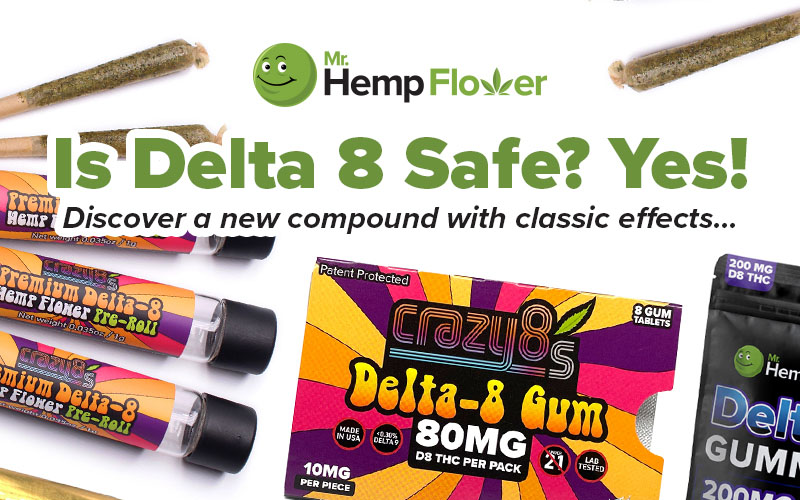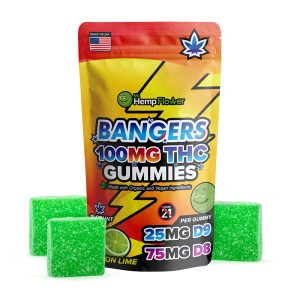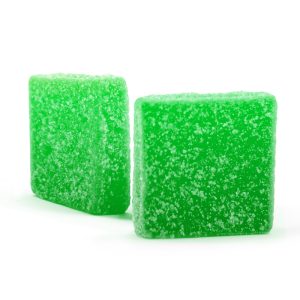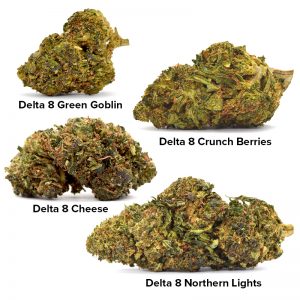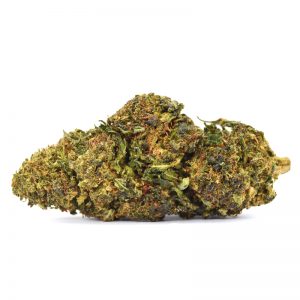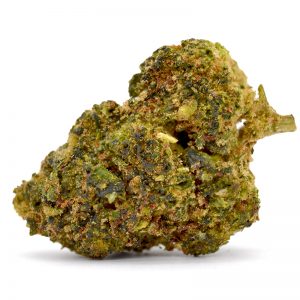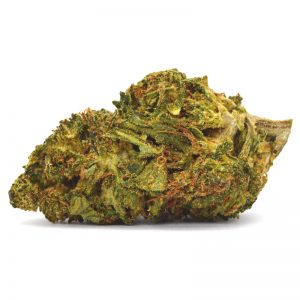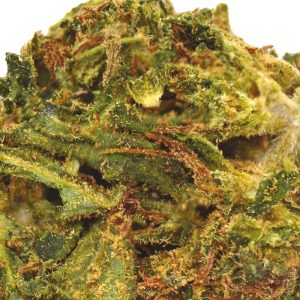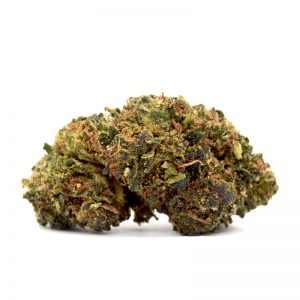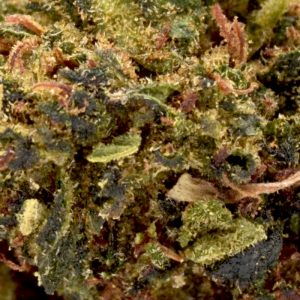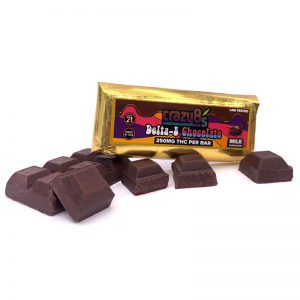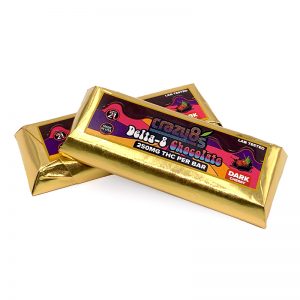Yes, Delta 8 THC is Safe — Here’s Why You Need to Try It
When discussing the safety profile of a cannabinoid like delta 8 THC, there are two aspects to consider: the risk of the cannabinoid itself and of the product infused with it.
This article explains everything you need to know about delta 8’s safety profile (what we know so far), the risks, and the side effects. It answers questions about possible overdosing, short-term and long-term risks from consuming this cannabinoid, and tips on how to purchase tested and quality products.
Is Delta 8 THC Safe?
There aren’t many studies that provide insights into the safety profile of delta 8 THC. Because this cannabinoid is not directly derived from the hemp plant, its manufacturing processes may involve harmful solvents and chemicals. This is why buying delta 8 THC from a reputable source is vital.
As a cannabinoid that naturally occurs in hemp, tetrahydrocannabinol is considered safe and well-tolerated. Based on current findings and anecdotal evidence, delta 8 THC is not much more harmful than other natural compounds, and — aside from several side effects — there aren’t considerable risks to one’s health associated with this cannabinoid.
But, every person who wants to try delta 8 THC should consider both the short-term and the long-term implications of this chemical compound. Like with every cannabinoid, there’s a risk associated with consuming delta 8 THC, so if one sees warning signs, they should discontinue its use.
As a tetrahydrocannabinol, delta 8 interacts with the endocannabinoid system similarly to delta 9 THC. Both engage with the cannabinoid receptor (CB1 receptor) in the brain. Delta 9 has a greater affinity to the CB1 receptor compared to delta 8 and, therefore, produces more potent effects.
Side-Effects From Using Delta 8 THC
There are a few side effects associated with delta 8 THC.
These side effects are felt shortly after consumption but typically fade away once the effects of this cannabinoid pass. They are similar to those experienced with delta 9 THC — but milder in regular users who are not sensitive to the compound.
Common short-term side-effects of delta 8 THC include:
- Anxiety
- Dry mouth
- Dizziness
- Nausea
- Confusion
- Loss of coordination
- Grogginess
A recent study published in the Journal of Cannabis Research found that delta 8 THC could provide the benefits of delta 9 with lesser side effects. Some of the side effects individuals reported in the study included [1]:
- Difficulty concentrating (81%)
- Difficulties with short-term memory (80%)
- Altered sense of time (74%)
Not every user experiences all of delta 8’s side effects. This study showed that 74% of participants didn’t experience anxiety, and 83% didn’t experience paranoia.
Another study published in Life Sciences (1995) found that delta 8 THC is safe for children. Although controversial, researchers used this compound in children suffering from nausea due to chemotherapy — and noted that the side effects of this cannabinoid were negligible [2].
This cannabinoid causes a dry mouth and physical distortion in most people — but they are felt as an inconvenience rather than being harmful to one’s health. If the symptoms last longer than a day or worsen over time, it’s recommended to stop using this cannabinoid until they fully clear up.
Are There Any Long-Term Risks of Delta 8 THC?
The long-term implications of cannabinoid use remain unknown.
There’s some evidence on how delta 9 THC affects the body and brain, but not for delta 8 THC. But, because these two compounds are so similar — both are tetrahydrocannabinol — it can be assumed that the long-term risks would be also similar.
Individuals younger than 21 (and even younger than 25) are recommended to abstain from tetrahydrocannabinol because their brains are still developing — and are therefore more vulnerable to the cognitive effects of THC.
Although THC has its time and place in the treatment of mental health disorders, several studies show a link between cannabis use and the development of a mental illness — particularly psychosis. [3].
THC affects the activity of the neurons in the brain, causing a similar activity to the one observed in patients suffering from serious mental illnesses [4]. Some long-term effects of tetrahydrocannabinol include:
- Impaired cognitive function
- Memory problems
- Dependency (rare)
- Addiction (rare)
- Acute psychosis in sensitive, reactive individuals
It’s important to note that not everyone will experience these long-term side effects. These effects tend to be more pronounced with heavy use of cannabis, especially very potent high THC strains.
So, it’s advisable to take delta 8 THC or any type of THC in a lower dose because low doses can be more effective (in some instances) than high doses.
Research at the University of Bath (UK) discovered that people who use cannabis with extremely high THC levels could be at a greater risk of developing addiction and psychosis to cannabis compared to users who consume lower potency products.
In addition, research at the University of Chicago found that low doses of THC can relieve stress, but high doses do the exact opposite.
It’s important to note that some people don’t experience any side effects from THC. Research is also in infancy, so we need more studies on delta 8 THC to draw accurate conclusions.
Overdosing on Delta 8 THC — Is It Possible?
You can experience some side effects when consuming delta 8 THC. But, they are mostly insignificant and don’t pose a danger to the user’s health.
When it comes to overdosing, there aren’t official records of delta 8 THC overdoses. The reason for that is that it’s physically impossible to overdose on any cannabinoid, including delta 8 THC. Meaning, the dose needed for a person to feel serious harm from THC is ridiculously high.
However, high enough doses can lead to negative experiences with THC. Symptoms like nausea, anxiety and paranoia, even hallucinations are not uncommon with an extremely high dose of delta 8 THC.
Is Delta 8 A Safer Alternative Than Delta 9?
As a naturally extracted compound, delta 8 THC is a safer alternative than delta 9 because it’s milder. However, the delta 8 industry remains largely unregulated.
Contaminated delta 8 THC products are the greatest risk associated with this cannabinoid.
In this scenario, delta 9 would be safer because the products made with it are pure and tested. While the delta 8 might not put you at serious risk, the harmful additives and chemicals that linger in the final product can be hazardous to your health. Those toxic chemicals can range from solvent residues and heavy metals to synthetic additives.
So, it’s paramount to stay away from poor-quality, potentially harmful products. Believe it or not, there are a bunch of these products spreading on the market, so it’s important to be careful.
This risk is pretty low with delta 8 when you are buying from a reputable source like Mr. Hemp Flower. All our delta 8 is extracted from organic hemp, is produced under the highest standards, and contains no residual solvents and other impurities.
Most importantly, it comes with a Certificate of Analysis. Once we make the delta 8 distillate, we send it to an independent lab for detailed testing that issues the Certificate of Analysis — a detailed test that serves as proof of the cannabinoid content and purity of the product.
Our lab reports are up-to-date and contain a visibly displayed code and date at the top of the page. They also contain the concentration of delta 8 THC, other cannabinoids and potential contaminants. Finally, we don’t hide the test from you — every product has a Certificate of Analysis displayed on the product page.
Buying online allows you to easily check the manufacturer and the lab results of the product you want to purchase. Let’s discuss the safety of edibles and vape cartridges because they are the most used forms of cannabinoid consumption.
Are Some Delta 8 THC Products Safer Than Others?
From vapes to edibles and concentrates — delta 8 THC is available in different shapes and forms. But are all of them safe? Are some delta 8 products safer than others?
The short answer is: every product can be safe if it’s tested and manufactured under the highest standards.
Vape carts offer the quickest onset of effects that can be felt 10 minutes after consumption, peak at 1 hour, and last up to 3 hours. Edibles take 30 to 45 minutes to work and the user may feel their effects up to 8 hours after consumption.
Because the effects of vapes fade more quickly, they can be a safer method to take this cannabinoid. However, there has been a link between unsafe vape carts and hospitalizations due to the presence of the harmful chemical vitamin E acetate. We need more research in this area as there are no studies that explore the safety of consumption methods. Adverse effects can happen with both vapes and edibles alike.
The dosing size of the product is extremely important — especially in the case of edibles. Because they take longer to work, many people reach for more and, as a result, take a much higher dose than what they can handle. Anecdotal evidence shows that the euphoric effects of delta 8 edibles are nearly identical to standard delta 9 THC edibles [5].
Because delta 9 is stronger, it may easily produce intense feelings of paranoia, a distorted sense of reality, and impaired cognitive function. In some users, these effects are immediate, while in others take a while to set in, but they can be really intense and difficult to process.
So, proper dosage is key with THC, but especially with delta 9 because it’s 3x times stronger. Delta 8 is milder and causes less intense adverse effects, but the dosage is still key as a new user might have an exacerbated reaction.
What Is Delta 8 THC?
Delta 8 THC is an intoxicating cannabinoid that naturally occurs in the hemp plant. It’s milder and less overwhelming than delta 9 THC and produces a subtle euphoric feeling that uplifts the mind and body. In high doses, for example, 3x the dose of delta 9 THC, delta 8 THC causes almost identical effects as delta 9.
The cannabis flower contains trace amounts of delta 8 THC, out of which mainly it’s produced through the degradation of delta 9 THC. The market offers delta 8 THC products made through isomerization, which takes CBD and converts it into delta 8 distillate.
By interacting with the primary receptors of the endocannabinoid system (ECS), delta 8 THC produces various benefits. The ECS is a complex biological network that provides homeostasis (balance) of the mind and body. It supports and maintains the functioning of the immune, endocrine, and digestive systems. Some of the benefits of this cannabinoid include:
- Boosts mood and energy
- Less physical discomfort
- Relieves aches and pains
- Improves appetite
- Increases focus
- Supports restful sleep
- Reduces feelings of irritability
- Promotes relaxation
Delta 8 THC makes you feel slightly euphoric but relaxed and peaceful. It provides a very pleasant and uplifting experience.
Delta 8 vs. Delta 9 vs. CBD: Differences And Similarities
Delta 8, delta 9, and cannabidiol (CBD) are isomers — they contain the same number of atoms, arranged differently.
The differences in structure create a separate molecule with its own benefits and risks. Delta 9 and delta 8 THC are tetrahydrocannabinols, meaning they activate the CB1 receptors in the brain to cause a euphoric feeling or a “high”. CBD, on the other hand, is very different because it’s more mild and non-psychoactive.
One of the biggest differences between these three cannabinoids that occur naturally in the hemp plant in different quantities is their legal status. CBD is 100% legal under the 2018 Farm Bill because it doesn’t produce mind-altering effects. Delta 9 THC is illegal federally, while delta 8 THC is illegal in certain states and in a legal gray area federally.
Why Buy Delta 8 THC Products From Mr. Hemp Flower?
You shouldn’t buy delta 8 just from anybody.
Cannabinoids are natural compounds with a delicate composition that require an attentive approach. Mr. Hemp Flower is a leading delta 8 brand offering top-shelf products infused with real cannabinoids and safe, natural ingredients.
Take out Delta 8 THC Gummies as an example. Coated with 25 mg premium delta 8 THC oil per gummy, these delicious, berry-flavored edibles come with a Certificate of Analysis. This lab report is made by a third-party lab that confirms their purity and potency. If you are looking for a clean product with the perfect texture and a juicy flavor, our gummies won’t disappoint.
You can take a serving of 25 mg during the day or at nighttime if you need relief from stress, pain and discomfort or a boost in appetite. Delta 8’s calming effects work great for many users with sleep problems. If you are a beginner, start with a lower dose by splitting the gummy in half.
Final Thoughts — Is delta 8 THC Safe?
Cannabinoids like delta 8 are natural and come with unique benefits and side effects, including dry mouth, nausea, anxiety, and confusion.
As a milder version of delta 9 THC, delta 8 THC is generally safe and well-tolerated, especially if consumed in low doses. This cannabinoid is perfect for relaxation and can help with overthinking and insomnia.
FAQs on Is Delta 8 THC Safe?
Is delta 8 safe to consume?
According to anecdotal evidence, delta 8 THC is generally safe and well-tolerated. In high doses, it may cause some side effects like dry mouth, nausea, and anxiety, but not in every user. The most significant risk from delta 8 comes from contaminated products.
Does delta 8 have harmful chemicals?
Delta 8 THC is a naturally occurring cannabinoid that doesn’t contain any harmful chemicals. But, delta 8 extracts, oils, and other products can have delta 8 distillate with toxic chemicals lingering.
Is delta 8 safe everyday?
Delta 8 THC possesses therapeutic benefits that are an excellent option for keeping aches and discomfort at bay. If consumed in smaller doses, delta 8 THC doesn’t appear to show many adverse effects, so it should be safe to use daily. The only drawback of using this cannabinoid is increased tolerance.
Is delta 8 natural or synthetic?
Delta 8 THC is a cannabinoid, a natural compound that occurs in the cannabis plant in trace amounts. Manufacturers don’t extract delta 8 from the plant directly because that’s not the most financially viable option, so they create it in a lab from CBD. Because of this conversion process, delta 8 could be considered a semi-synthetic compound.

